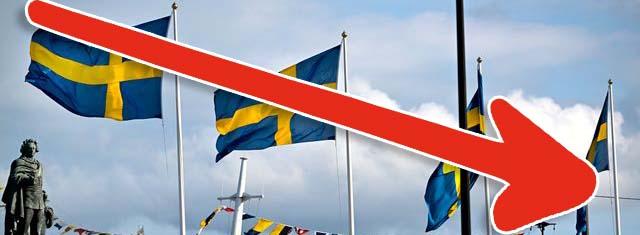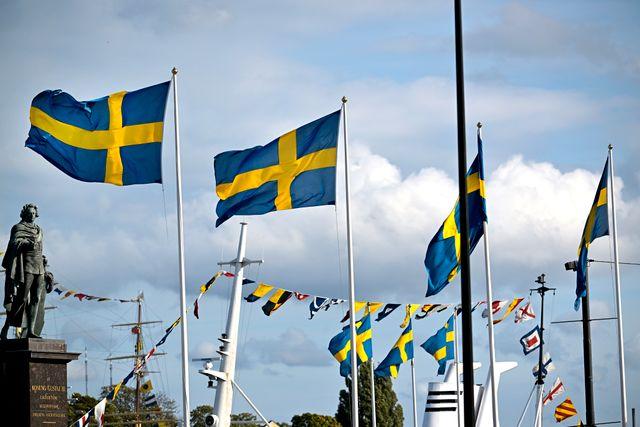My economy
Statistics Norway, Statistics Sweden
The Swedish economy is shrinking - now we are in a recession
"It's a nasty word, a ghost to many"
Gustaf Larsson
TT
Updated 10.41 | Published 08.19
Swedish GDP figures have been reported. Photo: Janerik Henriksson/TT
Sweden is in a recession.
Economy declines for the second quarter in a row, according to Statistics Sweden.
- The decline in the economy was broad, says Jessica Engdahl, section manager at Statistics Norway.
Sweden's GDP decreased by 0.3 percent during the third quarter, seasonally adjusted and compared to the quarter.
The reduction is for the second quarter in a row. Technically, this means that Sweden is in a recession, or a mild recession.
The decline is mainly explained by inventory liquidation and lower household consumption, where household consumption fell by 0.6 percent.
- GDP decreased for the second quarter in a row. The downturn in the economy was broad, but was held back somewhat by strong service exports. Household consumption expenditure decreased for the fifth quarter in a row, says Jessica Engdahl, section manager at the National Accounts.
"Cold Winter"
Alexandra Stråberg, chief economist at Länsförsäkringar, states that the outcome was worse than expected.
- It's a cold winter coming in, she tells TT, and adds that households have hit an interest rate wall
- which doesn't leave many kroner left for consumption.
Neither does Robert Bergqvist, senior economist at SEB, fall out of school with surprise.
- It's a nasty word, a ghost for many. But that's no surprise. Households are already feeling reduced consumption and higher interest rates, says Robert Bergqvist to TT.
Going forward, households may feel the recession more strongly - if unemployment rises even more, Bergqvist continues.
- If the labor market begins to weaken, households will notice more. There is a concern, companies may start to review their costs and hold back, and reduce the number of employees. Then there will be clearer effects for households.
What is GDP?
GDP stands for Gross Domestic Product, and it is an important measure of the size of an economy. It shows how much all the goods and services produced in a country are worth over a certain period of time, usually a year.
- Why is GDP important?
Why is GDP important? GDP is important because it helps us understand how well or poorly an economy is doing. When GDP increases, it usually means that the economy is growing and more goods and services are being produced. If GDP decreases, it may indicate that the economy is in trouble. It can lead to problems such as unemployment, reduced business activity and difficulties for people to find jobs or invest.
- What is included in GDP?
GDP includes everything produced within a country's borders. It includes goods such as cars, clothing and electronics, as well as services such as health care, education and restaurant visits.
- What affects GDP ?
GDP
is affected by many factors, including consumption (how much people
spend), investment (businesses' purchases of equipment and buildings),
exports (sales of goods and services to other countries), and imports
(purchases of goods and services from other countries).
- What does GDP say about the prosperity of a country?
GDP gives an indication of the size of an economy, but it does not say everything about the welfare of a country. It may be possible for a country to have high GDP but still have high unemployment or great economic inequality.
- What is recession?
A recession is usually defined as an economic downturn that lasts for at least two consecutive quarters. This
means that the economy must shrink, i.e. have negative growth, for two
consecutive quarters to be classified as a recession.


Inga kommentarer:
Skicka en kommentar